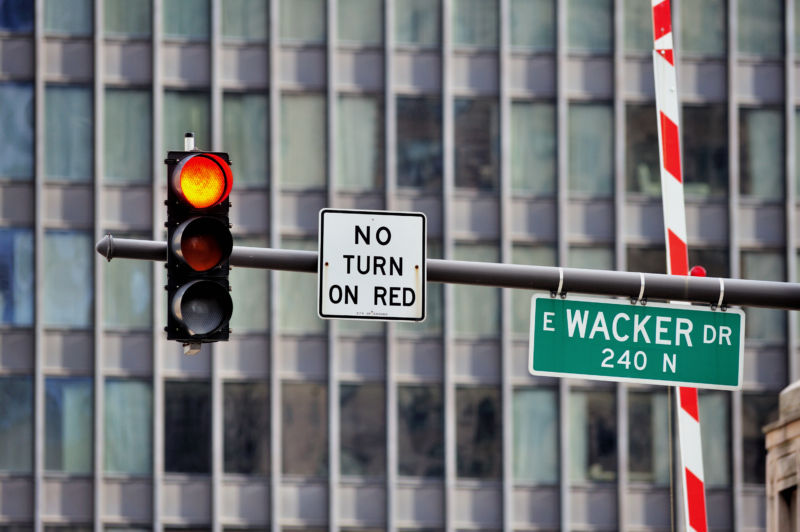
Under the new policy, which was announced Monday, the grace period for Chicago’s red lights will move from 0.1 seconds to 0.3 seconds. This will bring the Windy City in line with other Americans metropolises, including New York City and Philadelphia. In a statement, the city agency said that this increase would “maintain the safety benefits of the program while ensuring the program’s fairness.”
On Tuesday, the Chicago Tribune reported that the city would lose $17 million in revenue this year alone as a result of the expanded grace period. Michael Claffey, a CDOT spokesman, confirmed that figure to Ars.
“We want to emphasize that extending this enforcement threshold is not an invitation to drivers to try to beat the red light,” CDOT Commissioner Rebekah Scheinfeld also said in the statement. “By accepting the recommendation of the academic team, we are giving the benefit of the doubt to well-intentioned drivers while remaining focused on the most reckless behaviors.”
According to the study, which was conducted by Northwestern University Transportation Center and funded by the city, Chicago has the largest installation of red-light cameras anywhere nationwide, with 306 cameras at 151 intersections. Until 2012, the network of cameras was operated by Redflex; however, an investigation by the Tribune found that the company’s interactions with Chicago officials were actually corrupt. The mayor booted Redflex out and gave the contract to Xerox instead—three federal prosecutions connected to Redflex quickly followed.
reader comments
186